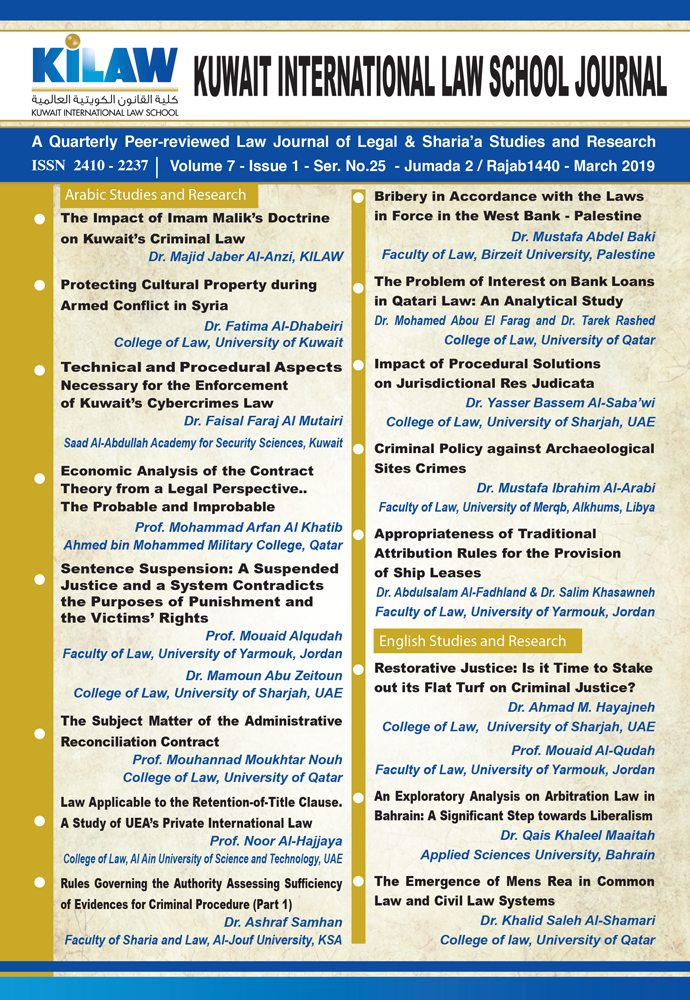Chief-in-Editor Prof. Badria A. Al-Awadi
In recent decades and years, global societies are witnessing a growing trend to enhance the quality of education, as this is a prerequisite for reforming education, ensuring its efficacy, and activating its role in stimulating sustainable development and marked revival and contributing to the advancement of civilization in its general sense. This has been successfully achieved as shown by international and domestic indicators and reports.
Not far from what it means in the administrative, economic and productive fields, quality of public and legal education involves a range of systems, standards, procedures, specifications and characteristics. These are adopted in business, activities, scientific and academic curricula, infrastructure, environment and administrative and human resources for the various stages and levels of the educational process, which could reflect excellence and efficiency of their graduates and the jobs they do. It also includes expertise, consultancy and services provided by educational and academic institutions to the governmental and private institutions, both domestically and internationally.
Given government and social policies and plans, and in light of the increasing competition and role of the private sector, quality systems in education, as is the case with other institutions, have become not only an institutional and legal obligation but also an approach to excellence and value-added. Educational quality systems have also spread and found their way to Arab and Gulf educational institutions and universities, in general, and Kuwaiti ones, in particular. It has led to the establishment of the Council of Private Universities (Law No. 34 of 2000) and the National Authority for Academic Accreditation and Quality Assurance in Education (NAQAAE) in 2010. Some academic institutions in Kuwait have received domestic and international accreditation. KILAW has received two quality certificates from the British Quality Assurance Agency (QAA); the first was the Institutional Quality Certificate and the second was for four of its academic programs: The Bachelor of Laws (LLB), Master of Laws (LLM), the Paralegal Diploma, and the English Foundation Program for the LLM.
This approach to adopt, promote and ensure the implementation of quality assurance will undoubtedly place a high value on education in general and legal education in particular. It also preserves the value of scientific and academic certificates and the status of graduates helping them get the jobs they look for. This approach would also open up opportunities to extend the fields of scientific research, positively influencing the relevant academic and social sectors.
However, these remarkable efforts and positive trends face several challenges, some of which relate to the weak will for reform and development, and limited resources, particularly in the field of public education. Other challenges may relate to the spread of commercialism, poor scientific level and weak oversight and responsibility as well as the desire of some to receive certificates without undergoing the necessary scientific training to meet the requirements of future jobs, which became manifest in the phenomenon of forging certificates.
The responsibility to improve and reform the level of education, enhance quality systems and meet these challenges altogether is to be shared by all parties. The society with its various institutions must cherish and promote the values of ijtihad (discretion) and educational attainment and reject fraud and forgery. The State with its various institutions must also fulfil its constitutional and social duties in sponsoring, developing and promoting education. Likewise, those in charge of educational institutions at all levels must ensure quality and protect education.

